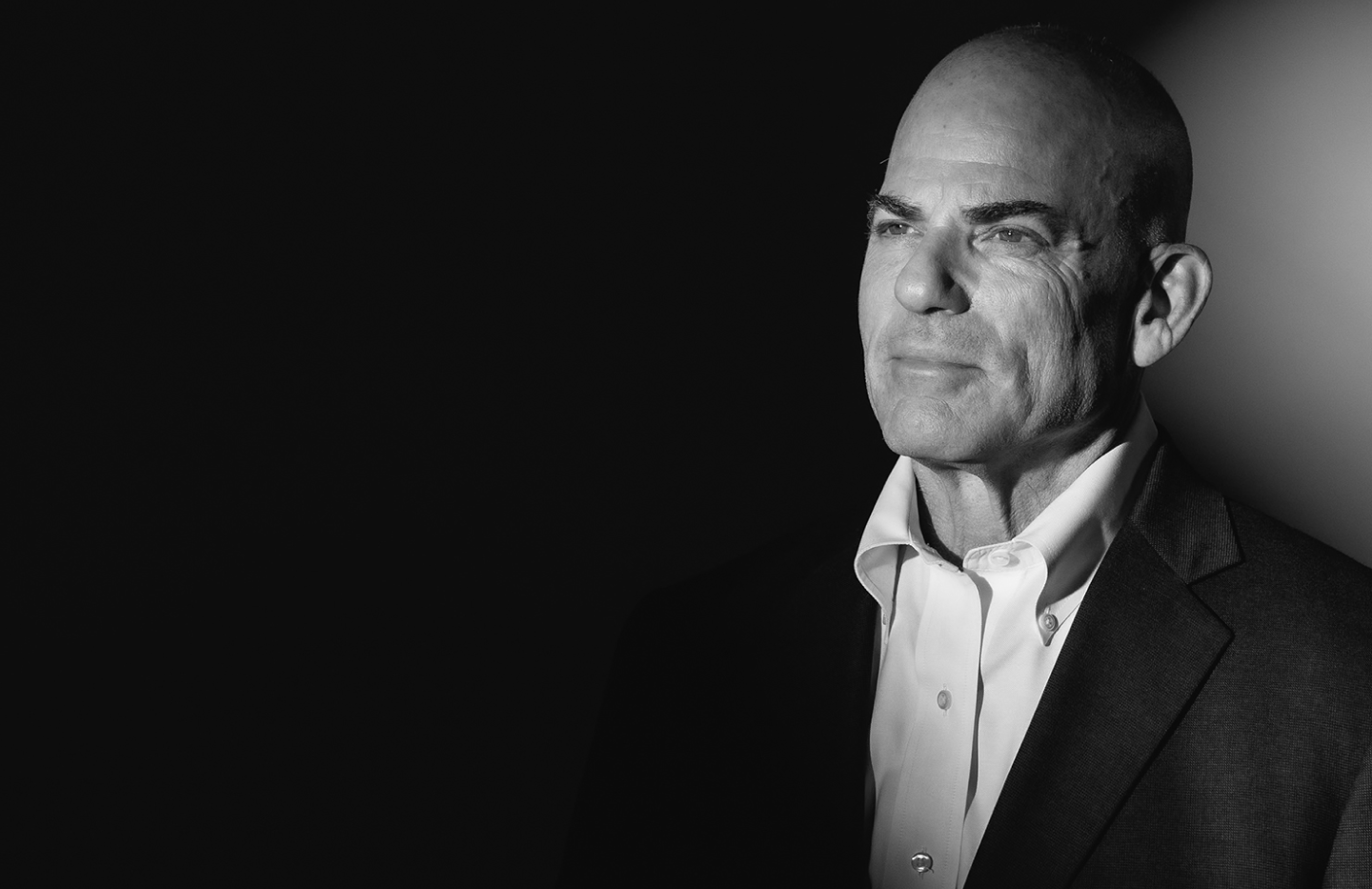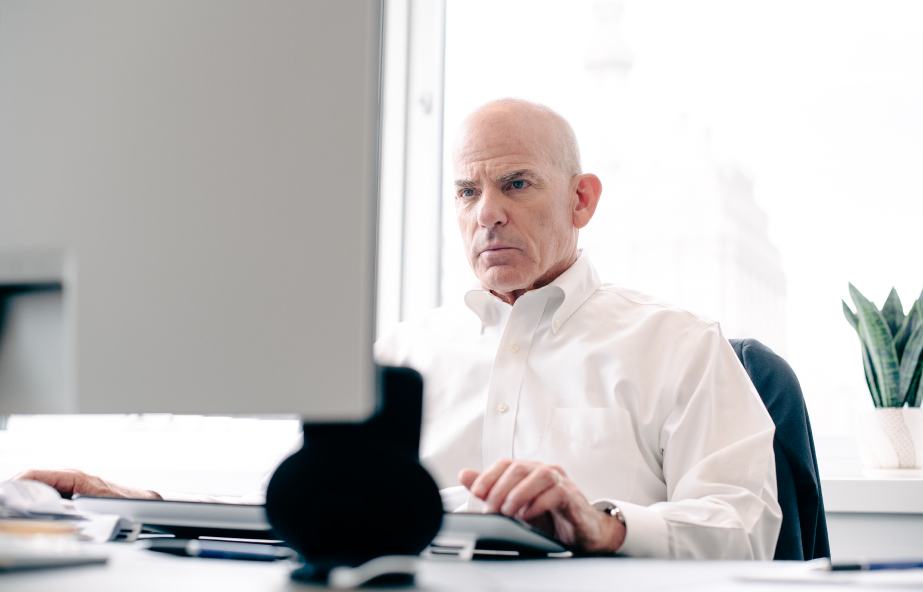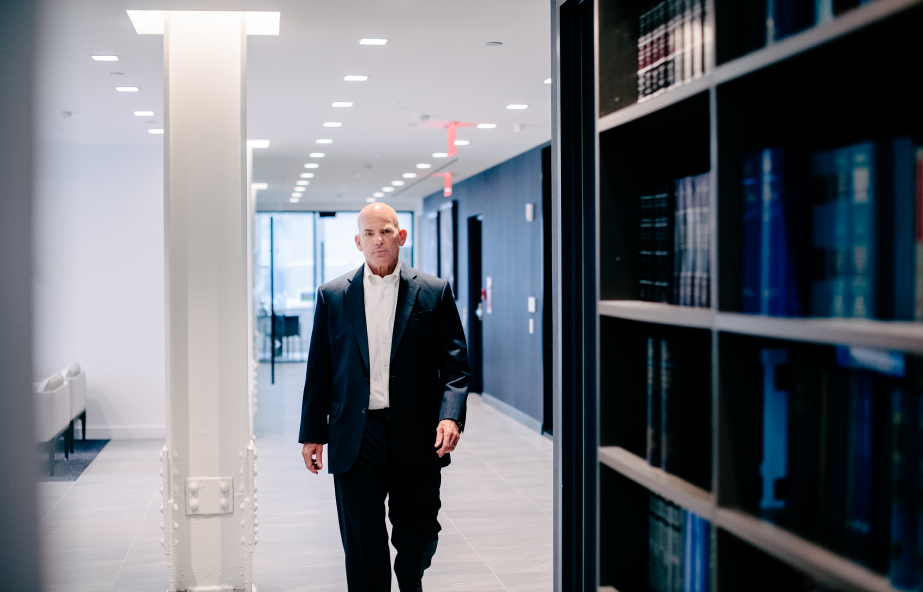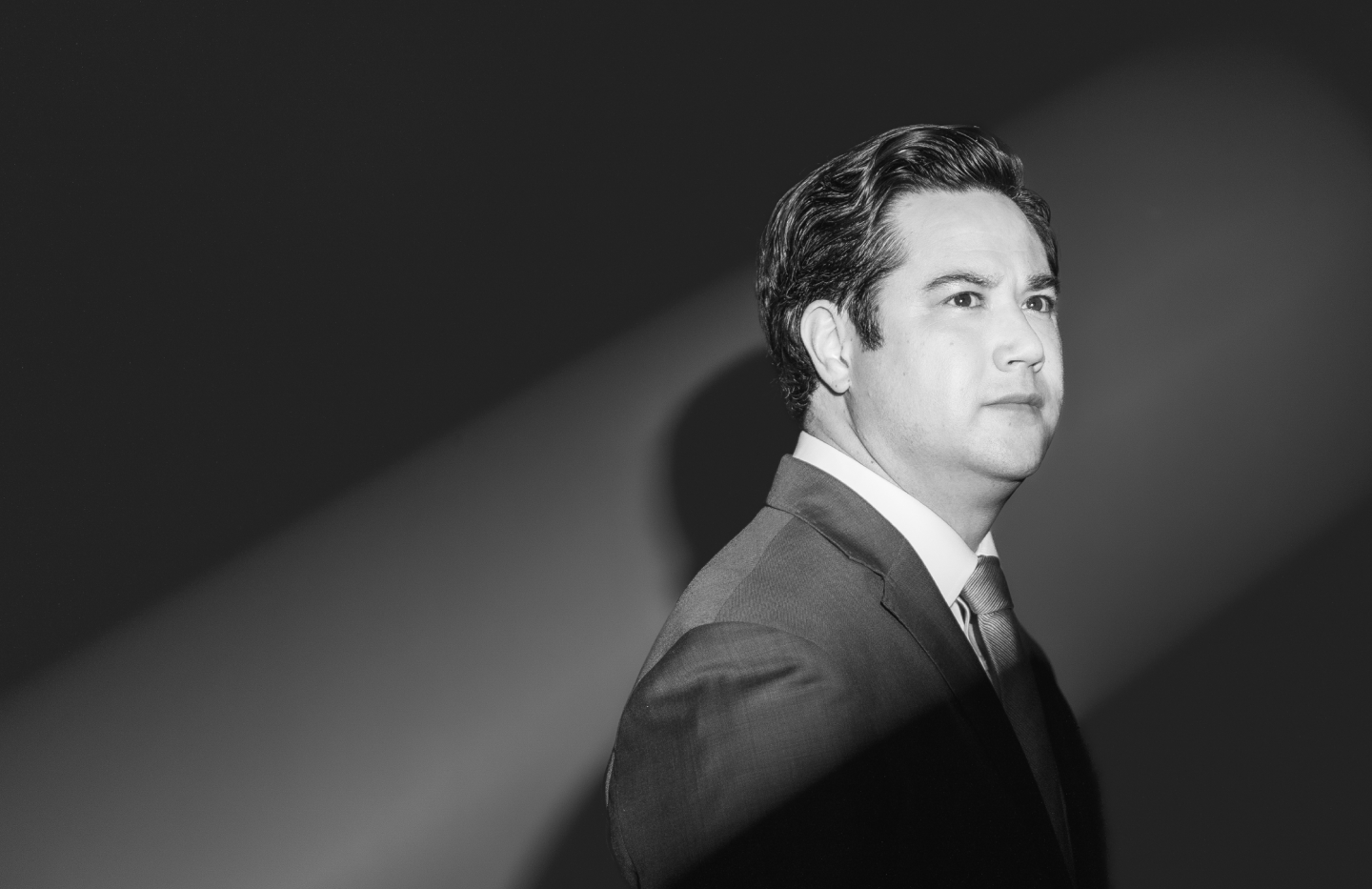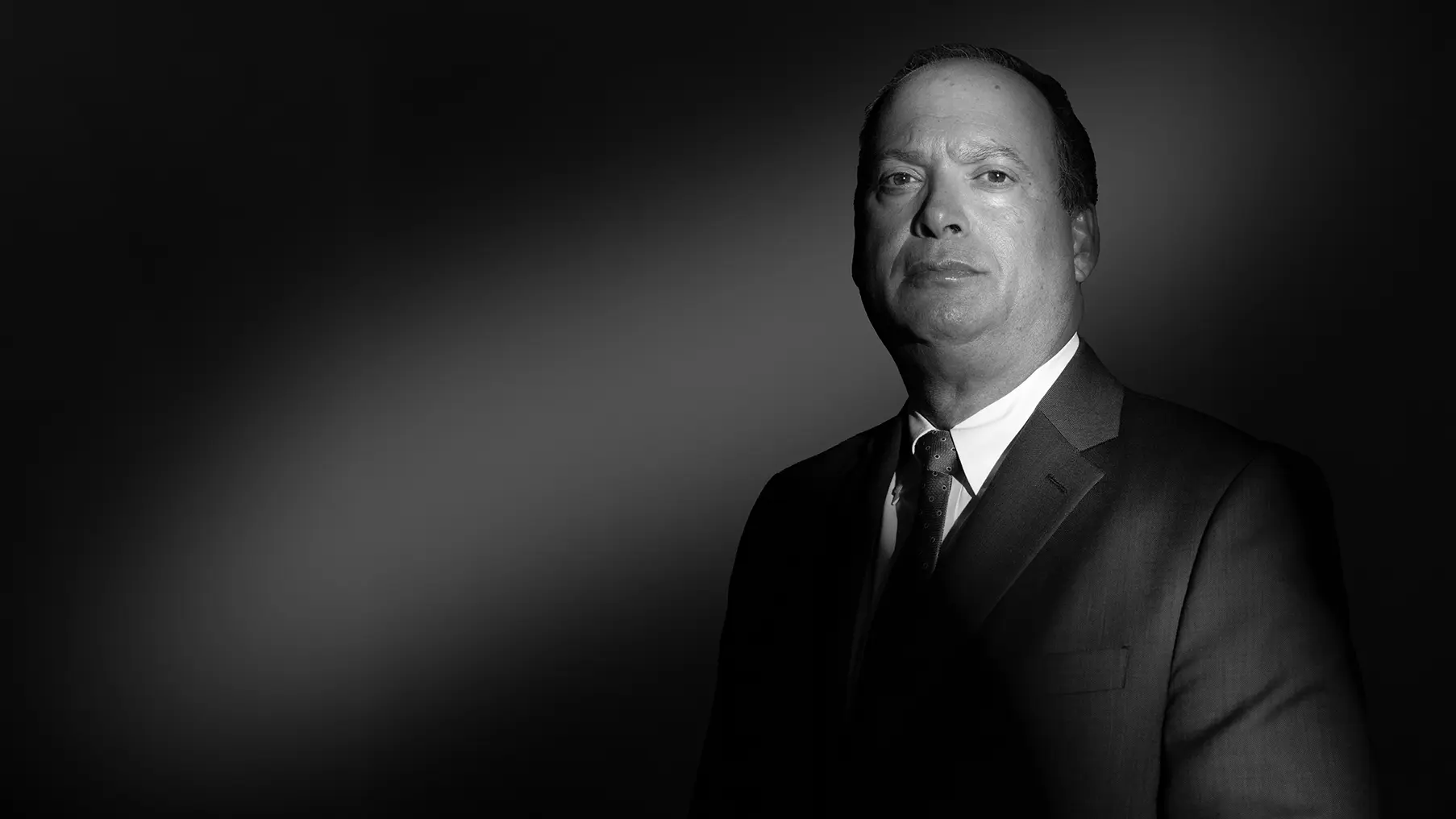Noah KushlefskyManaging partner at Kreindler & Kreindler LLP
Who challenges automakers and airlines to prioritize public safety?
Noah Kushlefsky, that’s who.
The Quest for Justice
At 15 years old, Noah Kushlefsky experienced the critical role of a plaintiffs lawyer. Because when his father was tragically killed in a car accident, it was a trial lawyer his family turned to for justice. And though, at the time, Noah didn’t intend to pursue law, that’s where he circuitously ended up anyway: in the shoes of a plaintiffs lawyer.
“It was a natural fit for me, having my life experience, and it was something that informed how I approached my career,” Noah says in retrospection.
In his current role as managing partner of New York City personal injury law firm Kreindler & Kreindler LLP, Noah often recalls his journey to becoming a trial lawyer. Though he ended up pursuing a law degree from The George Washington University with the goal of finding a good job out of school, it was never about the money. Even today, it still isn’t.
“I think the narrative presented by businesses and insurance companies, about how lawyers drive up prices, is a false narrative,” Noah says. “I wish people realized what motivates most of us to do what we do is a combination of compassion, empathy, a quest for justice, and a belief that money and power shouldn’t equate to justice.”
In fact, when interviewing for positions across several firms, he accepted Kreindler’s offer for the simple reason that he liked every person he spoke to, even though it meant a smaller salary. That was in 1987, and to this day, he believes it was the best decision he ever made.
More than just legal expertise
Thanks to his unique skillset and Kreindler’s commitment to helping the community, it’s created a perfect environment for Noah to thrive…and attain justice for his injured clients and their families.
“When you’re representing families of those killed, or those seriously injured, in accidents, what you bring to the table is far more than just legal expertise,” explains Noah. “You have to be part sociologist, part psychologist, part cheerleader, and part friend. Your primary job is to make sure they are able to move on with their lives in a meaningful way.”
Noah doesn’t take that responsibility lightly, either. Having his clients’ livelihoods on his shoulders is painstaking work – but work that’s more than worth the effort.
“You have to have both fearlessness and fearfulness. The fearlessness comes in because you’re almost always in a David versus Goliath situation, representing an individual against an extremely well-financed company,” Noah describes.
“The fear comes in because you’re responsible for representing someone who’s [oftentimes] lost their breadwinner. It drives you to work hard, work smart, and be relentless in your pursuit of justice. It’s terrifying, but it also brings out the best in us.”
“[As a trial lawyer,] you have to be part sociologist, part psychologist, part cheerleader, and part friend. Your primary job is to make sure [clients] are able to move on with their lives in a meaningful way.”
Noah Kushlefsky
Managing partner at Kreindler & Kreindler
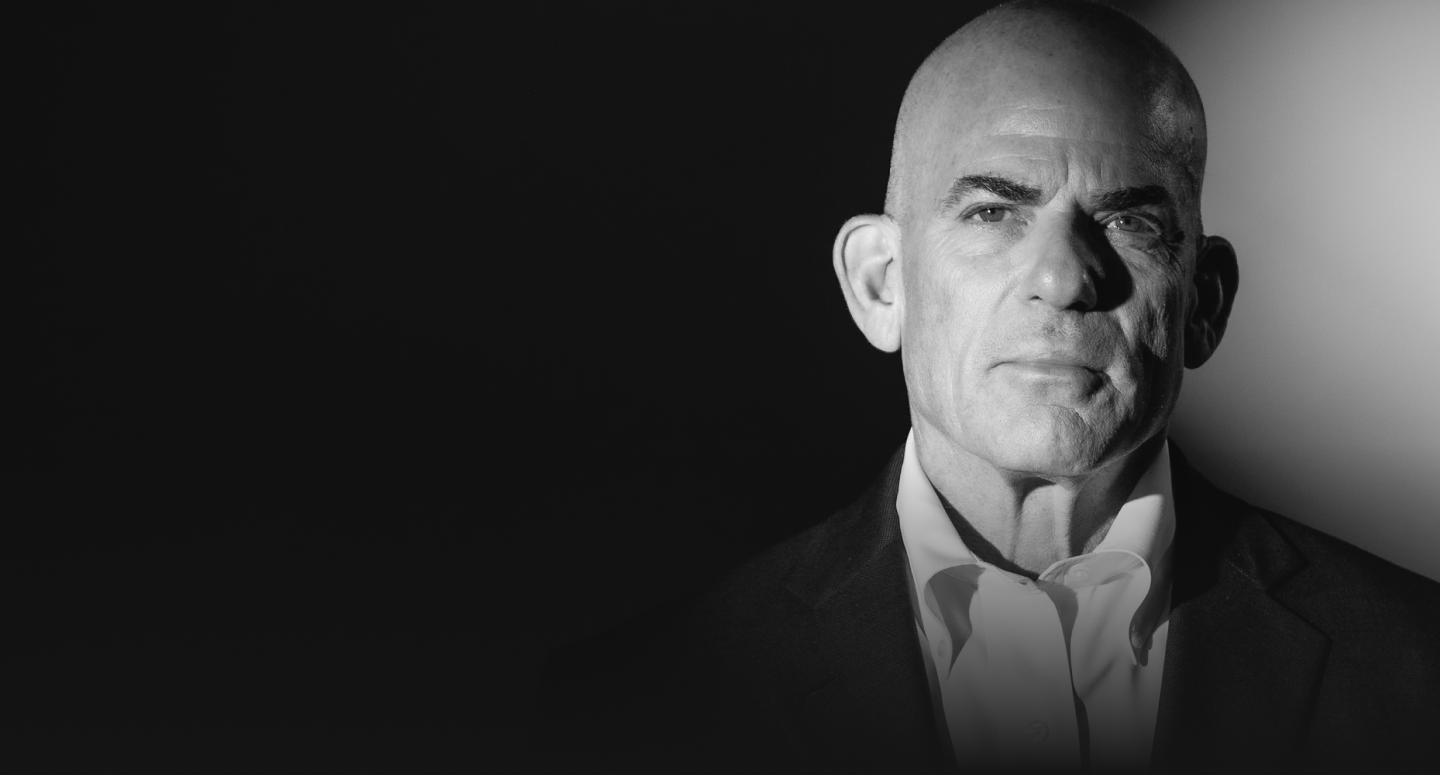
“[As a trial lawyer,] you have to be part sociologist, part psychologist, part cheerleader, and part friend. Your primary job is to make sure [clients] are able to move on with their lives in a meaningful way.”
Noah Kushlefsky
Managing partner at Kreindler & Kreindler
The problem with push-button ignitions
The task of fighting these large, global corporations on behalf of public safety has become a main focus of Noah’s practice. Specifically, Noah has sued a prominent player in the automobile industry three times as a result of their unsafe keyless ignition systems.
These horrific accidents looked similar across cases. A person that owns a vehicle with a push-button ignition—one that doesn’t require inserting a physical key to start the car—parks in their garage. With the car key never leaving their pocket or purse, the user exits the vehicle without realizing the engine is still running, leaving it to quietly send carbon monoxide into their home overnight. These odorless and colorless fumes are toxic, causing serious injury or even death while the user sleeps.
One of these cases happened more than a decade ago, involving Noah’s friend and colleague who died from this exact situation: succumbing to carbon monoxide poisoning after inadvertently leaving his car running in his garage.
“I was told that his key fob was on the kitchen counter…and that made me scratch my head,” remembers Noah. “I didn’t understand how a car could run without the fob being in the car. So, I started learning about the design of these push-button ignitions.”
Namely, Noah read up on federal regulations around automobiles. One regulation required that, in order to remove a physical key, the car must be off to prevent cars from being left running. Since that wasn’t the case for the victim, who had left his keys in the kitchen with the car still running, it further confounded Noah. But he soon, he would learn a vital distinction.
Figuring out the key
“[At first], I believed the ‘key’ was the fob. But when I looked deeper, I learned that when the push-button ignition started being designed, they changed the regulation to say the key is whatever you’re inserting into the ignition,” Noah explains. “For keyless ignitions, [the ‘key’] was the code sent to a car’s computer.”
“That meant the key could only be removed if the car was off, versus turning off the car in order to remove the key.”
This realization struck Noah as a significant safety hazard, prompting his first of many keyless ignition cases against automobile manufacturers. And while this particular case was settled before trial, it still led to an important meeting with perhaps the most significant stakeholders in the industry: the National Highway Traffic Safety Administration (NHTSA).
“The meeting was scheduled for five o’clock on a Friday, so I was convinced that I would be brushed aside,” recalls Noah. “But when I entered the room, there were 13 people there – the head of each different [NHTSA] department – and that’s when I concluded they were actually aware of this issue.”
Because of Noah’s meeting with NHTSA, the administration promulgated a notice of proposed rulemaking to implement safety fixes for keyless ignition systems. However, those rules were never actually passed. Still, NHTSA’s notice garnered a lot of publicity, causing Noah to take on several similar cases, all ending up resolved before trial.
Over time, manufacturers started implementing their own safety changes to stop these accidents from happening. For example, today, some cars with keyless ignitions will produce a loud signal if the key fob leaves the car’s zone when the engine is still running, prompting the user to investigate and intervene.
“I don’t know how much the litigation led to those changes, but what I do know is that the litigation made the problem very public,” Noah says. “So I take tremendous pride in that work, because I believe that it led to a simple change that has saved countless lives.”
Shouldering a legacy of aviation accountability
Another important facet of Kreindler is their legacy as the leader in aviation accident law. In 1952, Lee S. Kreindler, a founder of the law firm, tried the first plaintiffs’ personal injury case of its kind to prove that a malfunctioning propeller caused an airplane crash that killed 35. Some 75 years later, the trial lawyers at Kreindler continue to represent almost every major aviation accident case in the US.
Even though aviation is undoubtedly high-tech and complicated – from piloting to technology to regulations and everything in between – Noah actually prefers it that way.
“When I got [to Kreindler], I had zero background in aviation. I had to learn everything from scratch,” says Noah. “What I found is that by taking on cases that are technical and complex, if I can learn it myself, then I can explain it best to a jury. I can put it in terms they will understand. Because I’m no different than them when it comes to aviation expertise.”
In turn, Noah and his team at Kreindler have helped bring about significant changes to commercial aviation, specifically the transition from “hands-on flying” to what’s now called the “glass cockpit.” In the glass cockpit, the pilot programs waypoints into a plane’s computer, ultimately dictating their flight journey. However, early on in this era, Kreindler continually saw accidents caused by programming errors.
“So we pointed out problems and a lack of redundancy, and almost every case that we’ve litigated led to significant changes in design, training, or manuals,” Noah says. “We used to say that if we kept doing our jobs as well as we were, we would work ourselves right out of a job. We really did make aviation so much safer.”
Ensuring 9/11 survivors receive compensation
After nearly 3,000 Americans were killed in the devastating September 11th terrorist attacks in 2001 across NYC, Washington DC, and Shanksville, Pennsylvania, the September 11th Victim Compensation Fund (9/11 VCF) was created.
Established as part of the Air Transportation Safety and System Stabilization Act, the VCF provided financial aid to survivors and first responders that suffered from injuries as a result of the attacks, as well as to victims’ surviving families. Since 2001, Noah and his team have served as legal counsel to thousands of 9/11 victims and have secured more than $4 billion in awards for them.
“[In 2001], we represented almost 500 [victims’] families, most of which went into the VCF, and the rest litigated cases against the airlines,” Noah recalls. “Subsequent to those cases concluding, Kreindler began filing lawsuits against the terrorists – various entities that we felt were responsible for the attack – and that’s a case we are still currently litigating.”
Though the original VCF operated from 2001 to 2004, it was modified three different times (2011, 2015, and 2019) to support more than just first responders and survivors, helping any person who was present during the attack and/or exposed to the immediate aftermath.
Most recently, the VCF introduced a corollary that extended the VCF to people who were made sick by the toxic air in and around ground zero. Today, Kreindler is representing more than 10,000 of these individuals who have suffered respiratory illnesses like cancer as a result of their exposure.
Since that tragedy, it’s no surprise that aviation litigation has taken over Noah’s day-to-day practice. Throughout its aftermath and up to the present, his work to help victims’ families has been extensive.
According to Special Master Sheila Birnbaum, an attorney who headed the 9/11 VCF program in 2011, Noah was “influential during the wake of 9/11 in the development of the methodology for the original Victim Compensation Fund.” Noah was also appointed by a federal court to serve on the Plaintiffs’ Committee for all 9/11-related liability litigation and acted as Special Counsel for the World Trade Center Disaster Site Litigation.
“The Victim Compensation Fund is [now] open until 2090,” Noah mentions. “So I will be doing that [litigation] for the rest of my professional career.”
A partner that’s on the same page
Consistently trying cases against automakers and airlines is a significant task for many reasons. Not only are the cases dense and intricate, but they also require considerable capital investments to increase the likelihood of a favorable result.
For instance, Noah revealed that trying those push-button ignition cases required no less than five experts at a time, with each costing anywhere between $25,000 to $75,000. That underscored Kreindler’s need for financial flexibility and a steady cash flow, which is exactly what they found in Esquire Bank.
“Before working with Esquire, we were almost exclusively self-funded [which] really had an impact on our cash flow and standard of living,” Noah explains.
During this time, Kreindler worked with a multinational bank, one that continually included restrictive covenants on all their business relationships. Moreover, this bank evaluated Kreindler’s credit based on previous years’ finances, even though a contingency fee law firm’s case inventory operates on the basis of upcoming years’ fees. This failure to understand the contingency fee model brought Kreindler to Esquire’s doorstep, where they took advantage of their case cost financing solutions.
“Our banking relationship with Esquire allowed us to continue to operate in years when our cash flow would not have otherwise allowed us to accept cases,” says Noah. “We knew they were there for us and for our clients.”
Partnering for the long-haul
As the third-generation partner of Kreindler & Kreindler, a law firm celebrating its 75th year in business, Noah values longevity. To him, that means fostering the next generation of attorneys in a culture grounded in advancing civil justice – not personal gain.
But try as he might, part of maintaining that endurance is fighting the lobbyists who are increasingly calling for tort reform. As a trial attorney united under the plaintiffs’ bar – an informal designation of trial lawyers representing plaintiffs – Noah hopes he can help fight those lobbyists and further prove the value of trial lawyers in American society.
“Insurance companies and corporations [run] campaigns to blame trial lawyers for everything bad, [like] prices, insurance, and costs,” mentions Noah. “Over time, I hope people understand that’s false, [and] that the plaintiffs’ bar doesn’t simply take money. We are here to serve a purpose for the common good more than anything else.”
Another essential piece to solidifying Kreindler’s future is their partnership with Esquire – a bank built by attorneys for trial lawyers.
“A lot of commercial banks have tremendous business interests which have led them to supporting tort reform,” says Noah. “But when we work with Esquire, we know that [they] see the world the same way we do with respect to civil justice and righting wrongs.”

